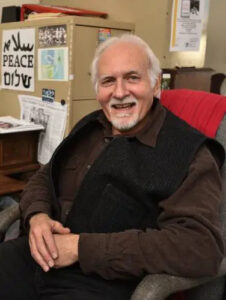Naomi Nir Papers
Naomi Nir spent much of her life exploring the deep inner workings of the self through writing, painting, drawing, studying the writings of mystics, and exploring — both as subject and scholar — Jungian analysis and philosophy. Nir was born in Manchester, England in 1917. Her father, Shmuel (Samuel) Tolkowsky, was an agronomist working in Palestine and her mother, Hannah, was the daughter of a prominent Zionist and philanthropist. Nir lived in Tel Aviv and then Jerusalem for her entire life, married folklorist and anthropologist Raphael Patai in 1940, and then ended the marriage in 1948. That same year, Nir sought out Jungian analysis with Erich Neumann, a German psychologist and student of Carl Jung, who had moved to Palestine in 1934. Nir’s formal analysis with Neumann was brief, but the two maintained an intensive correspondence and relationship for several years following. Between 1953 and 1954, Nir was in Switzerland at the C. G. Jung Institute, where she underwent analysis with Emma Jung (wife of Carl Jung). Nir then returned to Israel, where she worked assembling pottery from archaeological digs and did play therapy with troubled children. Nir died in Jerusalem in 2004.
The Naomi Nir Papers contain Nir’s original journals spanning 1948-1973, in her original handwriting and also as a typescript version, totaling over 2,600 pages in length. The journals, or “Notes” as she called them, explore Nir’s journey of psychological and spiritual self-reflection in the context of and following a Jungian analysis with Erich Neumann, and provide an intimate look at the world and players of Jungian society and her contentious relationship with Jungian thought. The collection also includes more than one hundred letters written to Nir by Neumann, as well as a small group of Neumann’s writings and lectures collected by Nir. In addition, there are multiple works of art in the form of pastel and charcoal drawings created by Nir during periods of intense self-reflection.


